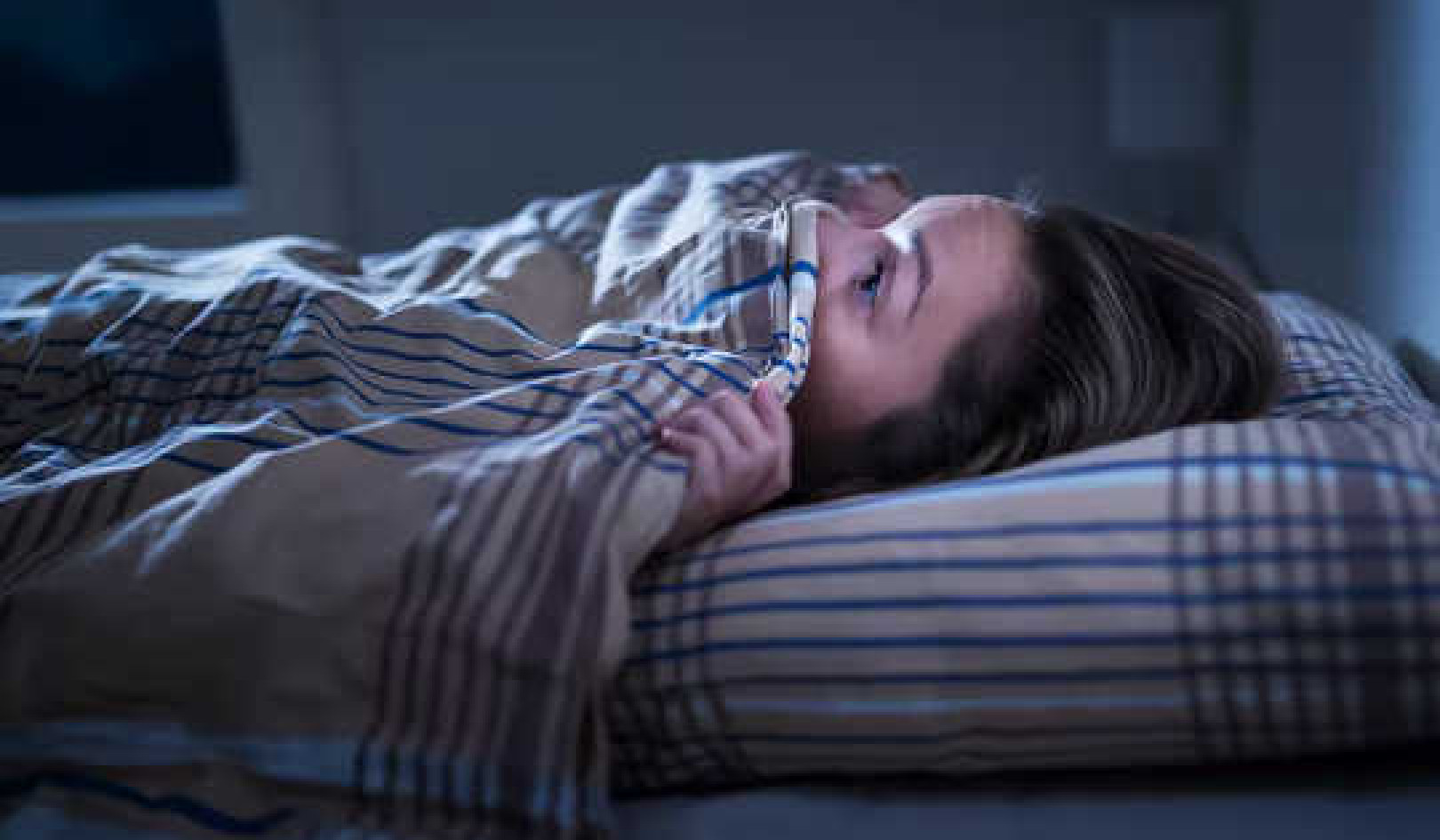
Occasional insomnia is not a serious problem because our bodies do their best to make it up as quickly as possible, to snatch extra winks during afternoon naps, restful weekends, sick days, and vacations, often shortening the time spent in light sleep to get more of the restorative deep and dream phases of sleep. However, several consecutive nights without enough sleep can begin to wreak havoc, especially for those who ordinarily get enough.
Studies have demonstrated that a week of sleeping four to five hours a night induces a cognitive impairment equivalent to a blood alcohol level of 1 percent. Performance suffers, immunity weakens, stress hormones increase, and our abilities to learn, assess situations, and respond flexibly are reduced. Behind the wheel, or in the office of the president, we become a danger to others.
Are You Sleeping Enough? Are You in Sleep Debt?
As of 2005, the average American got less than seven hours of sleep on weeknights, an hour less than they most likely needed. Scientists call the difference between the amount of sleep we need to feel refreshed and the amount we actually get before the alarm goes off sleep debt. That debt accumulates night after night, and at some point, it has to be repaid.
As a general rule, every hour lost must be added later. Most people, myself included, try to catch up on weekends. It is a binge-and-purge habit that psychiatrist and sleep researcher Robert Stickgold has termed sleep bulimia.
The catch is that it does not usually work. We may feel better for a few hours on Saturday or Sunday after a long sleep the night before, but come evening, we are still impaired and more apt to make mistakes, have accidents, and overreact because the entire debt has not been repaid. To recoup fully, we need to sleep longer for several consecutive nights, something that is out of reach for many Americans.
Learning My Lesson the Hard Way
I learned that lesson the hard way, as I often do. When I worked as a baker in Austin, Texas, in my twenties, I started at four in the morning in order to get the croissants, breads, and cakes ready for the pre-workday rush. I would set my clock for 3:45 am, sleep in my work clothes, flip on the light the moment the alarm rang, hop out of bed, brush my teeth, jump on my bike, and ride the mile or so down to the bakery, where I grabbed a cup of coffee and a day-old bear claw and started rolling dough. I worked until 2 pm, rode my bike to a nearby pool where I swam a mile to cool off, then rode back home for a big salad.
Things would have been fine if I went to bed after that, but I did not. I had a social life, friends to visit, classes to take, meetings to attend, movies to see, and bands to hear, so I rarely made it to bed before ten or eleven. On my “weekends” (usually Monday and Tuesday) I slept in, sometimes through an entire day and night, but never really caught up on my lost sleep.
These years were happy, productive ones. It was not that I did not like to sleep; I just had so much I wanted to do and not enough time to do it. Rather than miss a party, I would dance until my legs gave way and I dropped to the floor, curled up into a ball, and fell asleep in the middle of the dance floor.
Some ten years later, the pendulum swung to the other side. I collapsed, got sick, could not get well, and slept ten to twelve hours every night with a few more daytime rests. I just could not stay upright for any length of time. The way I think of it, I pulled the rubber band of my sleep purge so far, it snapped, and I had to pay the price.
Sleep Deprived? When Will You Be Able to Catch Up?
 Teenagers, who are perhaps the most sleep-deprived age group in our society, tend to binge and purge like there is no tomorrow. Night owls by nature, most adolescents would stay up late and sleep in if schools didn’t intervene to make them get up early. As a result, approximately 90 percent of teens in the United States do not get enough sleep.They drag themselves through their days like walking zombies, often too sleepy to pay attention at school and too irritable to get along with others. Grades dip, moods plummet, fights break out, and the desire for fatty foods increases.
Teenagers, who are perhaps the most sleep-deprived age group in our society, tend to binge and purge like there is no tomorrow. Night owls by nature, most adolescents would stay up late and sleep in if schools didn’t intervene to make them get up early. As a result, approximately 90 percent of teens in the United States do not get enough sleep.They drag themselves through their days like walking zombies, often too sleepy to pay attention at school and too irritable to get along with others. Grades dip, moods plummet, fights break out, and the desire for fatty foods increases.
By the time the weekend rolls around, American teenagers are, on average, ten hours behind on their sleep, which may explain the stupid decisions that get made on Friday nights. Weekends and school vacations provide opportunities to begin catching up, but those twelve- to twenty-hour slumbers for which teenagers are famous usually do not fully make up for what was lost.
Evidence of the effects of long-term sleep deprivation has been emerging, and the news is not good. Chronic sleep loss puts people at greater risk for obesity, diabetes, heart disease, strokes, mood disorders, accidents, and death. It further reduces immunity and increases sensitivity to pain. In light of this research, pioneering sleep scientist William Dement declared:
“Sleep is one of the most important predictors of how long you will live — as important as whether you smoke, exercise, or have high blood pressure or cholesterol. . . . Unhealthy sleep remains Americans’ largest, deadliest, most costly, and least studied health problem.”
A Brief History of Sleep Worry: Psychophysiological Insomnia
Dire warnings like these strike fear into the hearts of most everyone I know who struggles to get enough sleep. While the research is intended to inform and motivate us to improve our slumber (as if that were easy), my friends tell me that having the knowledge that losing sleep can make them fat, dumb, and reckless tortures them mercilessly when they lie awake at night, only making matters worse. Worry aggravates insomnia, often stretching minutes of blurry-eyed wakefulness into hours and entire nights.
This condition is so common, it has a medical name: psychophysiological insomnia, meaning that the physical symptoms of insomnia are fueled by psychological anxieties in a self-perpetuating cycle. I think the term tells us more about the difficulty medicine has in addressing interactions between our bodies and minds than it does about what is happening during those long nights of tossing and turning. After all, who wouldn’t worry about not getting enough sleep if they weren’t getting enough?
The answer seems obvious: no one. But that is not necessarily the case. People who do not have to perform at their peak the next day, who do not have to spend long hours driving or doing tedious tasks at computers and on assembly lines, who do not have to make split-second decisions that could save or lose a life, who do not have to brainstorm in boardrooms under the scrutiny of their bosses, basically everyone who does not have to produce at top efficiency the next day, can live with less-than-enough sleep more easily.
People who can nap the following afternoon, work according to their own rhythms, and even utilize the lack-of-sleep slowness to observe, reflect, and respond spaciously, do well enough. Insomnia undoubtedly has its miseries, but it is the demands we make upon ourselves by day that turn those miseries into nightmares.
©2014 Kat Duff. Reprinted with permission
from Atria Books/Beyond Words Publishing.
All Rights Reserved. www.beyondword.com
This article was adapted with permission from the book:
The Secret Life of Sleep
by Kat Duff.
 The Secret Life of Sleep taps into the enormous reservoir of human experiences to illuminate the complexities of a world where sleep has become a dwindling resource. With a sense of infectious curiosity, award winning author Kat Duff mixes cutting-edge research with insightful narratives, surprising insights, and timely questions to help us better understand what we’re losing before it’s too late.
The Secret Life of Sleep taps into the enormous reservoir of human experiences to illuminate the complexities of a world where sleep has become a dwindling resource. With a sense of infectious curiosity, award winning author Kat Duff mixes cutting-edge research with insightful narratives, surprising insights, and timely questions to help us better understand what we’re losing before it’s too late.
Click here for more info and/or to order this book on Amazon.
About the Author
 Kat Duff is the award-winning author of The Alchemy of Illness. She received her BA from Hampshire College where she pursued a multi-disciplinary concentration in literature, psychology, sociology, anthropology, and neuroscience. Kat’s life-long love of sleep and her friendship with two chronic insomniacs led her to investigate the subject of sleep with her signature multi-disciplinary approach. Visit her website at www.thesecretlifeofsleep.com/
Kat Duff is the award-winning author of The Alchemy of Illness. She received her BA from Hampshire College where she pursued a multi-disciplinary concentration in literature, psychology, sociology, anthropology, and neuroscience. Kat’s life-long love of sleep and her friendship with two chronic insomniacs led her to investigate the subject of sleep with her signature multi-disciplinary approach. Visit her website at www.thesecretlifeofsleep.com/


























